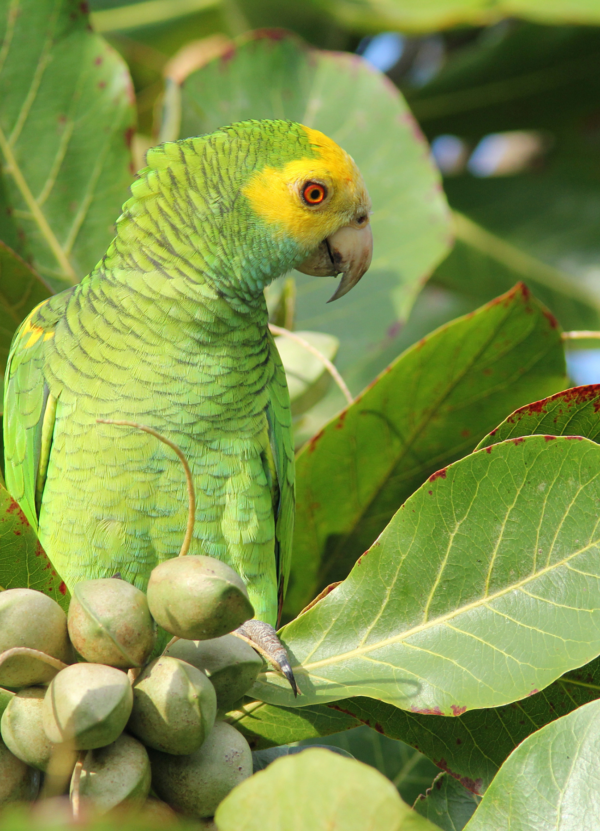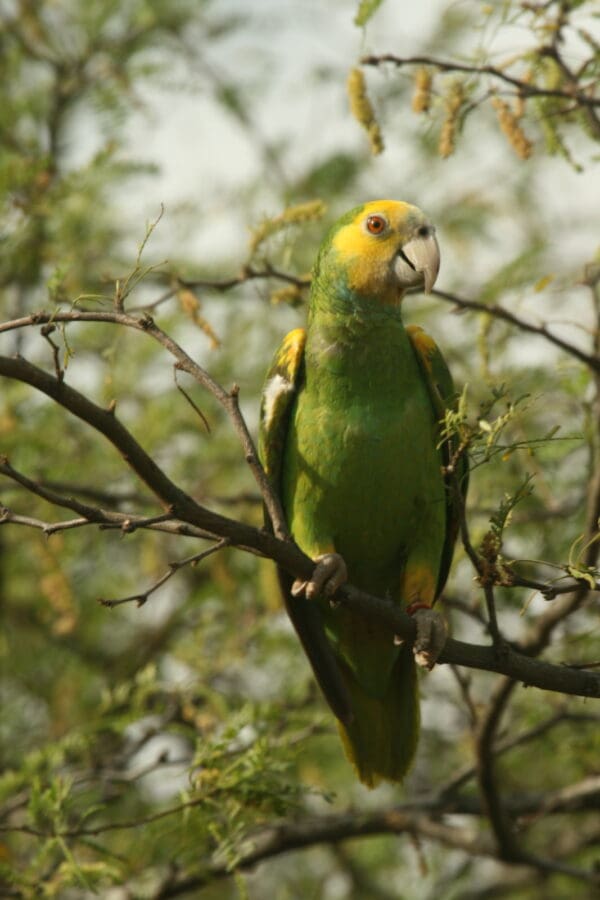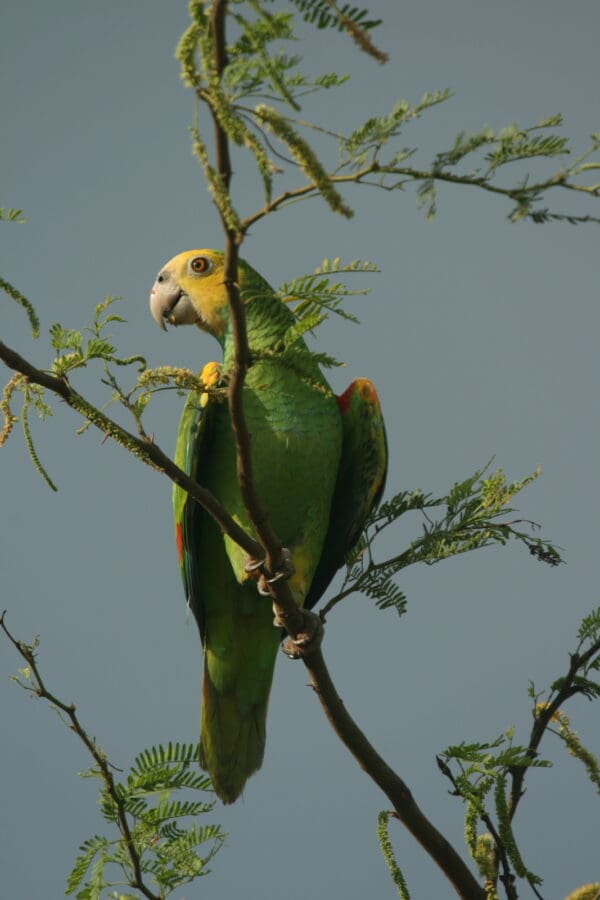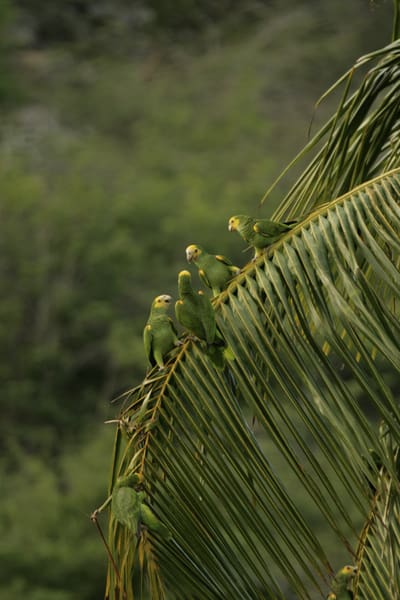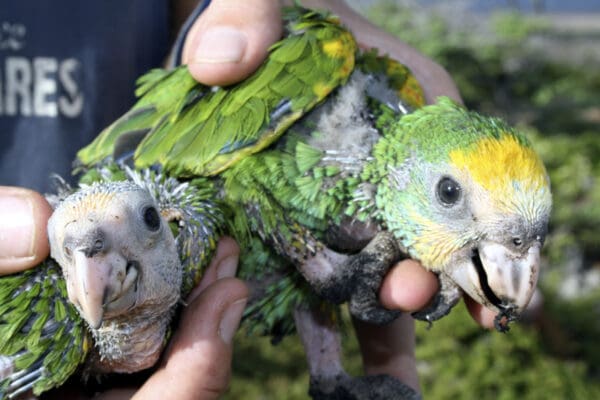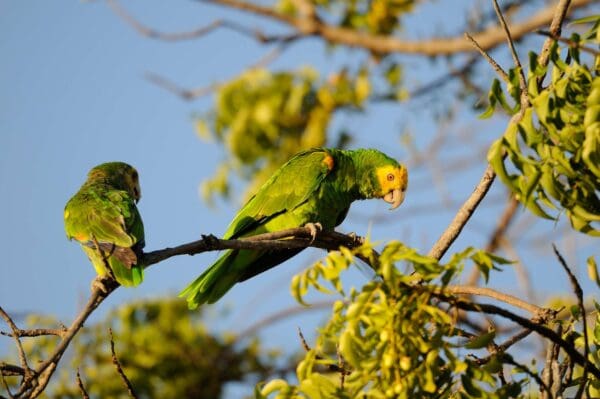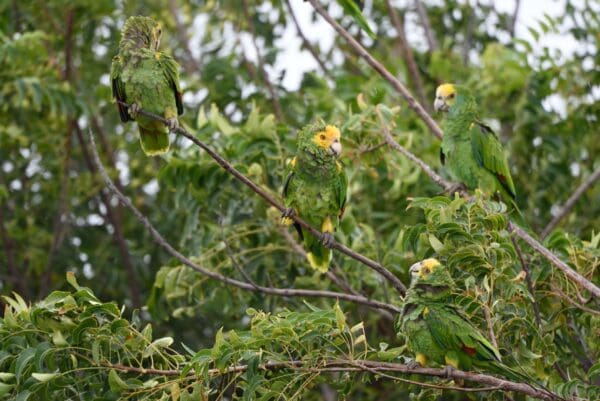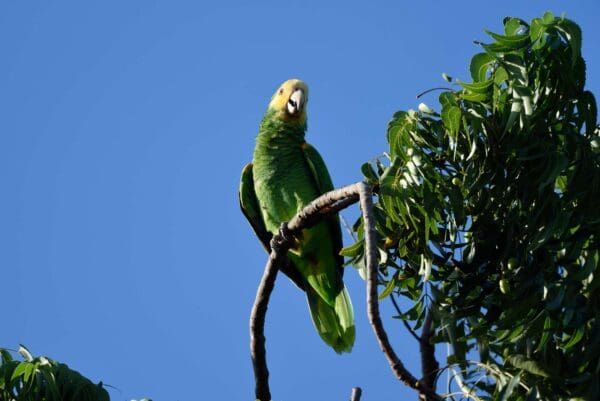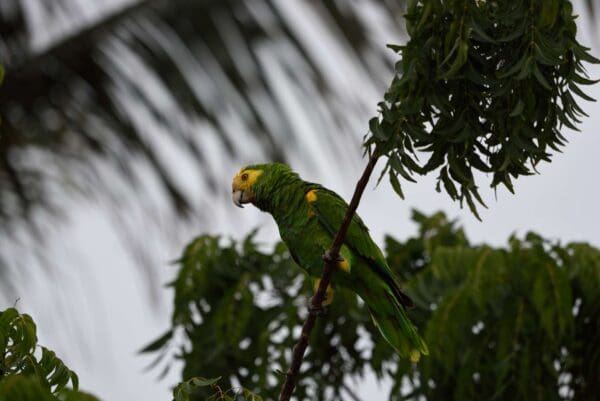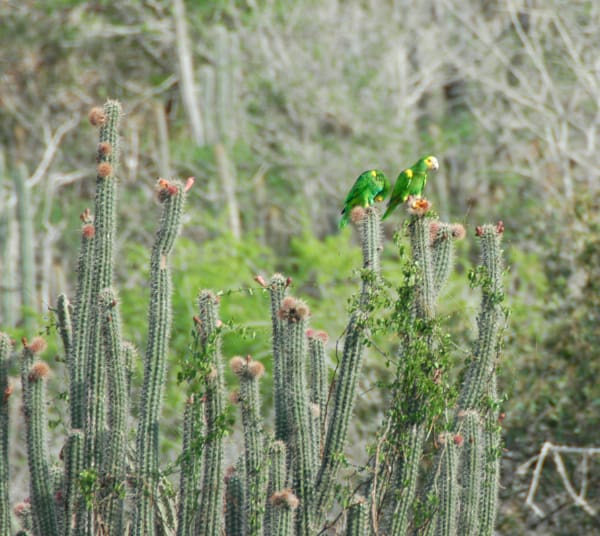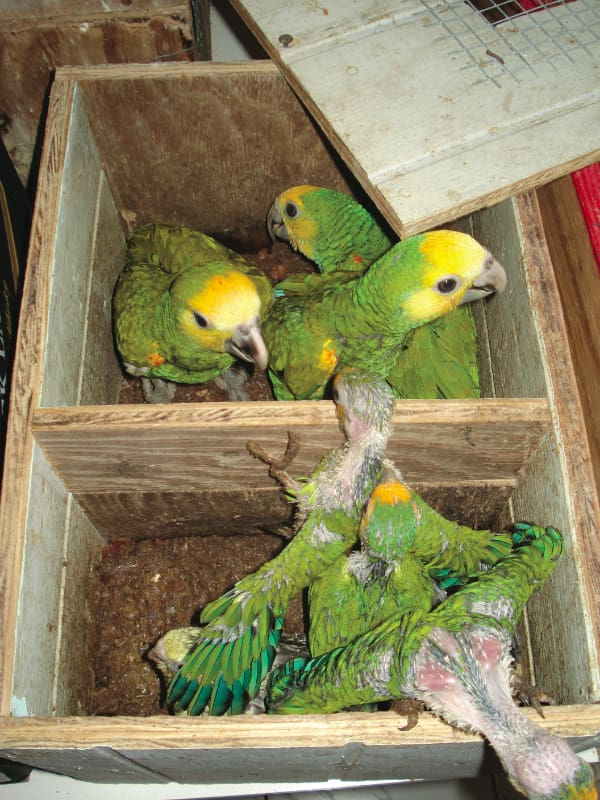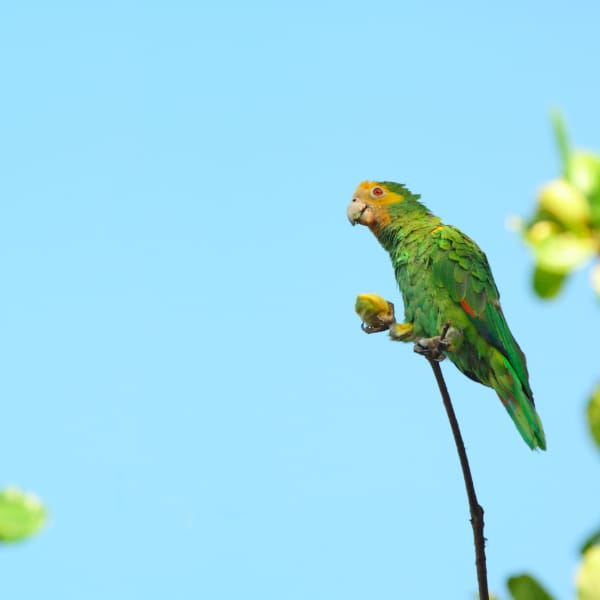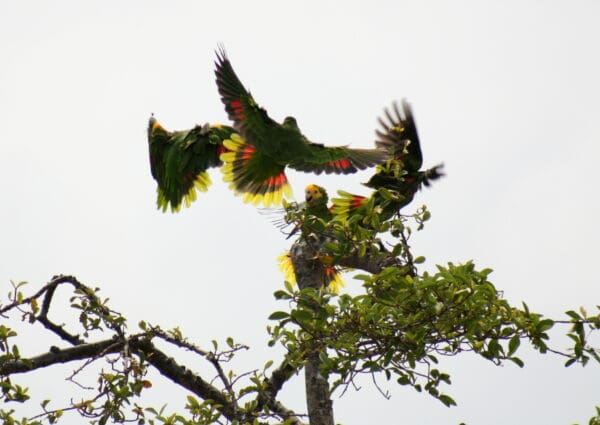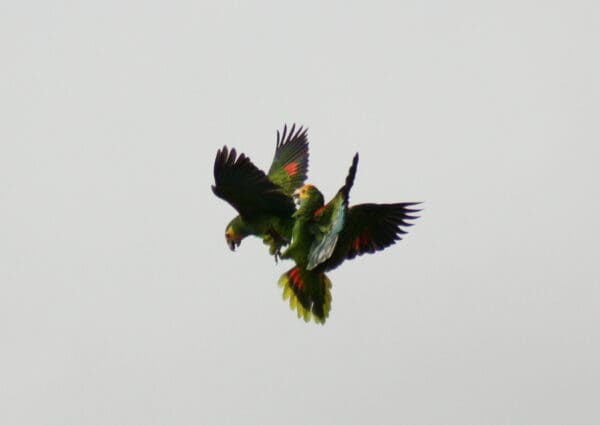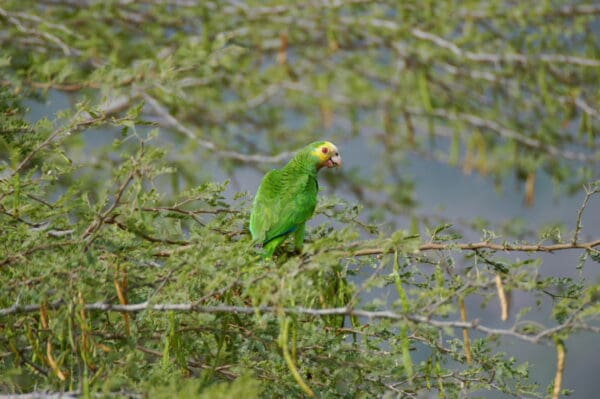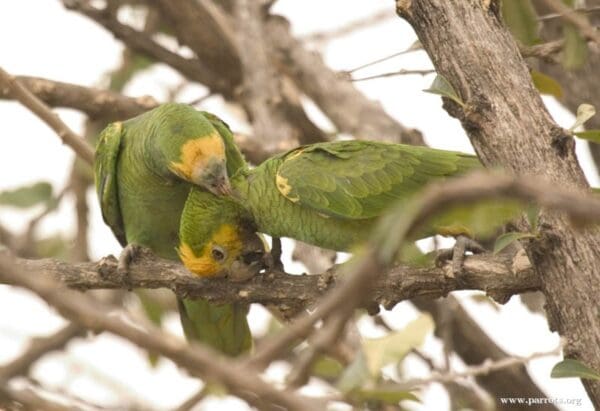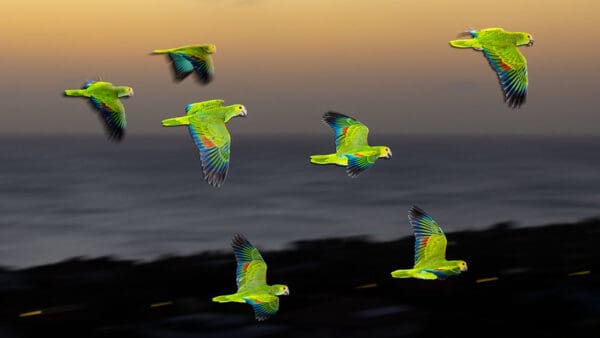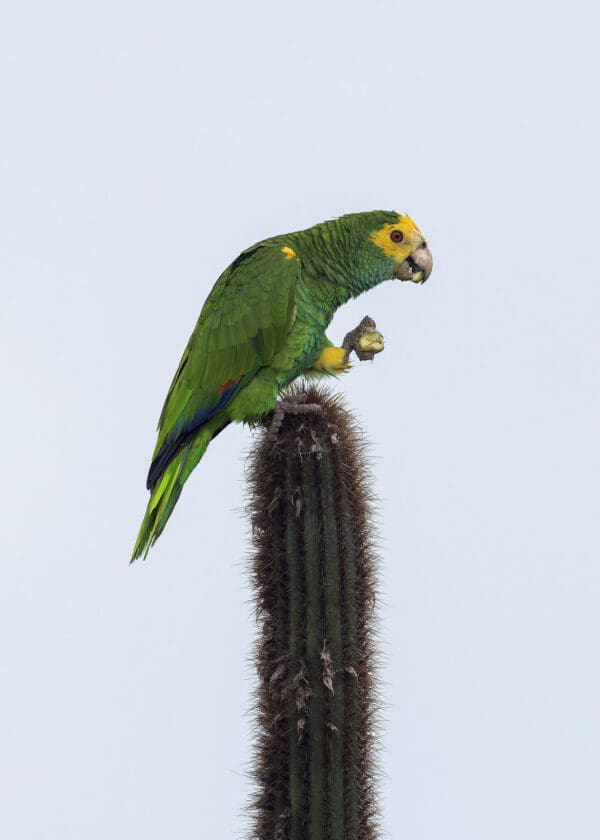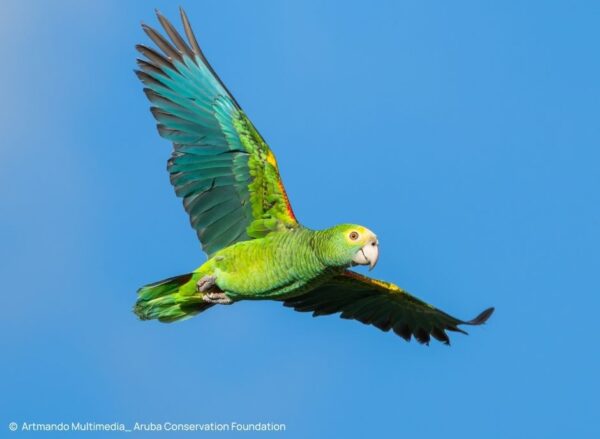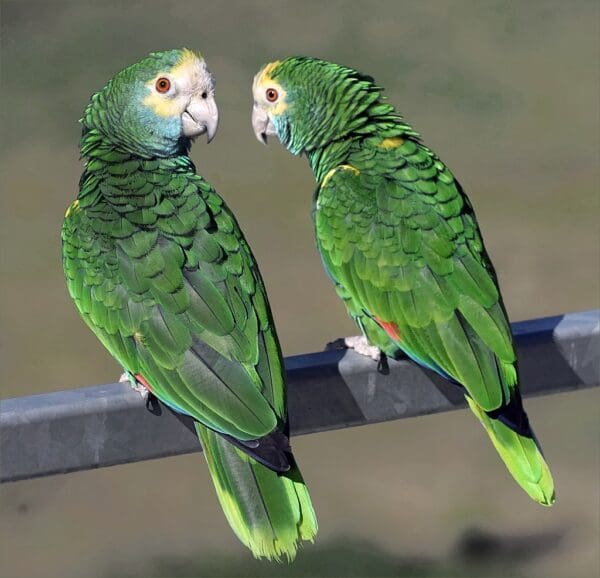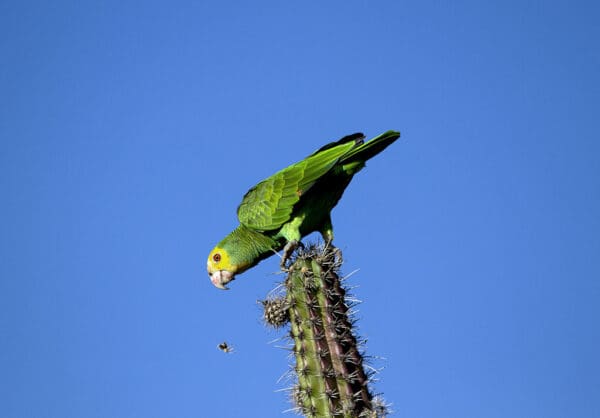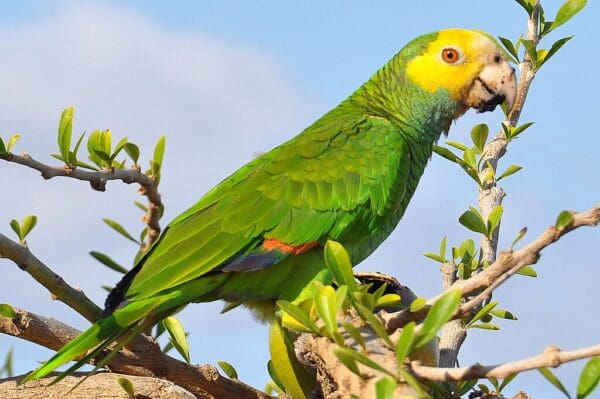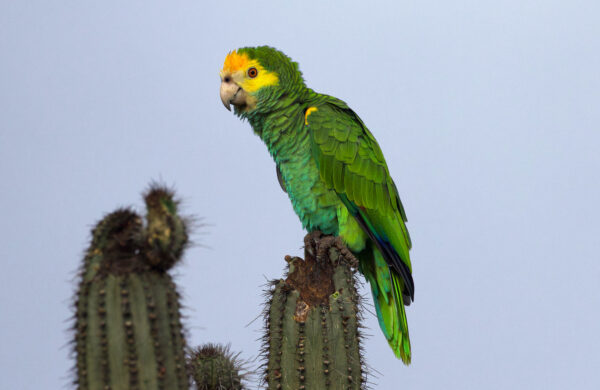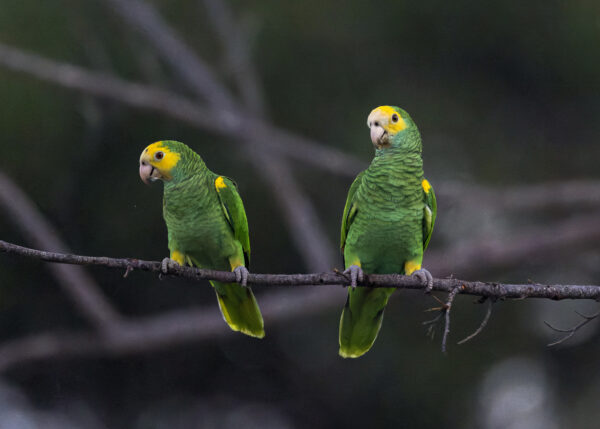Yellow-shouldered Amazon
Also known as:
Yellow-winged Amazon (Parrot), Yellow-shouldered Parrot
Also known as:
Yellow-winged Amazon (Parrot), Yellow-shouldered Parrot
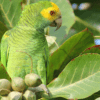
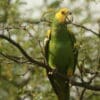
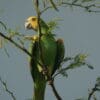
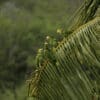
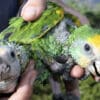
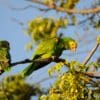
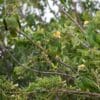
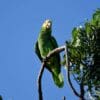
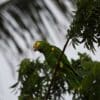
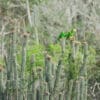
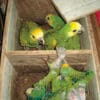
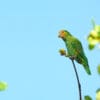
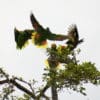
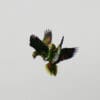
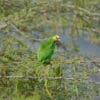
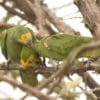

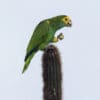
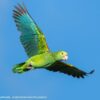
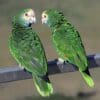
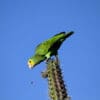
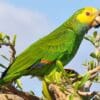
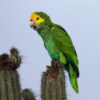
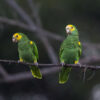
DID YOU KNOW?
As juveniles, Yellow-shouldered Amazons may be kept in colonies, but must be separated into pairs once older due to their aggressiveness.

Amazona

barbadensis
Size:
33 cm (12.8 in)
Weight:
270 g (9.4 oz)
Subspecies including nominate:
one
Colour Adult:
Both adults: green body colour with fine black scalloping on feathers; white forehead, forecrown and lores; yellow hindcrown to area around eyes and upper cheeks; yellow thighs; bend of wing yellow; red wing speculum across feather bases of secondaries 1-4; green tail with orange/red hidden in feather bases. Beak horn coloured. Eye ring pale grey. Eye orange/red.
Colour Juvenile:
As in adult but usually duller in colour with less yellow on head; forehead white occasionally tinted with blue. Beak grey/white washed with dark grey. Eye brownish.
Call:
Calls loud and raucous; less musical than other Amazons.
Yellow-shouldered Amazon – AVoCet Cornell Lab Macaulay Library
More Information:
Content Sources:
CITES
Avibase
BirdLife International
Cornell Lab of Ornithology/Birds of the World
A Guide to Parrots of the World, Juniper and Parr, 1998
Parrots: Status Survey and Conservation Plan 2000-2004, Snyder, McGowan, Gilardi and Grajal, 2000.
Parrots of the World, Forshaw and Cooper, 1977. 2010 edition
Parrots of the World, Forshaw, 2006.
Genus Amazona, Stoodley and Stoodley, 1990
Parrots in Aviculture, Low, 1992.
Psittacine Aviculture, Schubot, Clubb and Clubb, 1992.
Captive Status:
Rare.
Longevity:
—
Housing:
Walk-in enclosure, minimum length 4.5 m (14.7 ft) or aviary or suspended cage, minimum length 3 m (9.8 ft).
Diet:
Fruit such as: apple, pear, orange, banana, cactus fruits, pomegranate, forming about 30% of the diet; fresh vegetables such as: carrot, celery, green peas, beans, fresh corn, green leaves; spray millet and limited mixed seed, cooked beans and pulses, complete kibble.
Enrichment:
—
Nest Box Size:
12″ x 12″ x 24″ (30.5 cm x 30.5 cm x 61 cm) vertical box
Clutch Size:
2-3
Fledging Age:
9 weeks
Hatch Weight:
—
Peak Weight:
—
Weaning Weight:
—
World Population:
2500-10,000 mature individuals, decreasing.
IUCN Red List Status:
Near Threatened
CITES Listing:
Appendix I
Threat Summary:
A BirdLife ‘restricted-range’ species. Affected by habitat loss in island range due to tourism and overgrazing by domestic animals, and is widely exploited for local bird trade. In some areas is persecuted for visiting crops.
Range:
Restricted to small coastal area in Venezuela and the islands of Blanquilla, Margarita and Bonaire. Introduced to Curaçao, Netherlands Antilles.
Habitat:
Occurs in areas with cacti and thorny bush and trees; also reported around cultivated areas and mangroves. Found up to 450 m (1476 ft) on Margarita, maybe higher on the mainland.
Wild Diet:
Fruits, seeds and flowers including Platymiscum, Pithecellobium, Piptadenia, Piscidia, Bulnesia, Tabebuia, Capparis, Malpighia, Bourreria, Casearia, Guaiacum, Terminalia, Spondias, Moringa, Ziziphus, Caesalpinia, Crotalaria, Acacia, Prosopis, Leucaena, Bursera, Crescentia and various cacti.
Ecology and Behaviour:
Found in pairs, families; also larger flocks of up to 100. Roost communally in tall trees or rock outcroppings.
Clutch and Egg Size:
2-3 ovate eggs, 36.5 x 26.0 mm (1.4 x 1 in).
Breeding Season:
March-September, sometimes October on Bonaire. Nest is in tree, cliff or cactus cavity.
